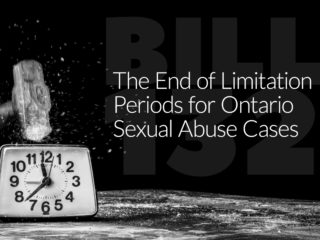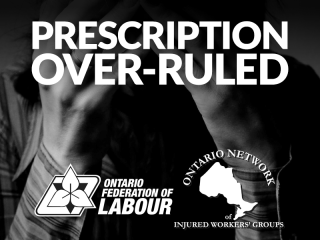This is a motion for summary judgment by the Defendant on liability in an action arising from a motor vehicle collision – the Court provides useful comments for cross-examinations on affidavits filed supporting the motion.
Date Heard: June 7, 2018 | Full Decision [PDF]
The Defendant brings this motion for summary judgment, asking the Court to determine the issue of liability in his favour and dismiss the Plaintiff’s action. The collision happened at a T intersection controlled by stop signs. There was one independent witness to the collision. The Defendant suggested that as the Plaintiff’s evidence relating to the collision was inconsistent and the independent witness’ evidence favours the Defendant’s version of events, the credibility issues were amenable to resolution on a summary judgment motion on the record before the Court.
The Plaintiff was travelling eastbound, whereas the Defendant was travelling southbound. The independent witness was allegedly travelling westbound and was stopped at the stop sign when the collision happened. The Plaintiff claimed that she stopped at the stop sign and then proceeded through the clear intersection when suddenly the Defendant executed a left turn and hit her on the driver’s side. The Defendant claimed that he stopped at his stop sign and saw no cars coming eastbound. The driver of the westbound car waived him to proceed and as he was making his left turn the Plaintiff hit him on his passenger side. The independent witness saw the Defendant’s car stop at the stop sign and then proceed to make his left turn. He then saw the Plaintiff’s car approach, not slow down or stop at her stop sign, and then hit the Defendant’s car as he was making his left turn.
Copeland J. stated that the crucial question on this summary judgment motion was whether the record would allow her to fairly make the necessary findings of fact, in particular, findings of credibility. She examined the evidence in detail and noted that there were consistency issues in the evidence of all three witnesses. Where the Plaintiff and Defendant have conflicting versions of evidence, Copeland J. was not prepared to accept the independent witness as a credible witness primarily on the basis of his asserted independence and concluded that she was unable to make the necessary findings of fact on the paper record on the motion.
More interestingly, Copeland J. made some useful comments on cross-examinations on affidavits. The Defendant filed an affidavit on the motion. The Defendant had also attended an examination for discovery the year prior to swearing that affidavit. The Plaintiff cross-examined the Defendant on the affidavit. During cross-examination, the Defendant refused to answer various questions relating to the collision on the basis that the questions were previously asked at the examination for discovery. Copeland J. said:
With respect, a refusal to answer questions at cross-examination on an affidavit filed in a motion on the basis that the question was previously asked at an examination for discovery is inappropriate and not founded in the rules of evidence. The defendant made a choice to file an affidavit on the motion. The plaintiff was entitled to cross-examine on any issues relevant to the motion. Given that the motion was a summary judgment motion respecting liability, asking questions about the Defendant’s version of events was appropriate, and indeed central to the motion.
It does not matter if these issues had been explored at the prior discovery. Indeed, an effective method of cross-examination is to test a witness’ consistency, or lack of consistency, over different occasions of giving their evidence. Counsel for the defendant’s refusals to have the defendant answer questions on issues at the heart of the factual issues relating to liability denied the plaintiff the opportunity to test the defendant’s evidence, and denied the court a full record for the motion.
Copeland J. also assessed whether it was appropriate to order a mini-trial on the issue of liability by considering the possible outcomes. If the mini-trial on liability was decided even partly in the Plaintiff’s favour, there would still have to be a trial on the issue of damages, which could result in two proceedings and would increase expense and time rather than make for a more efficient proceeding. Copeland J. declined to order a mini-trial, dismissed the motion and ordered $15,000 in costs in favour of the Plaintiff.
Read the full decision [PDF]















1 Comment